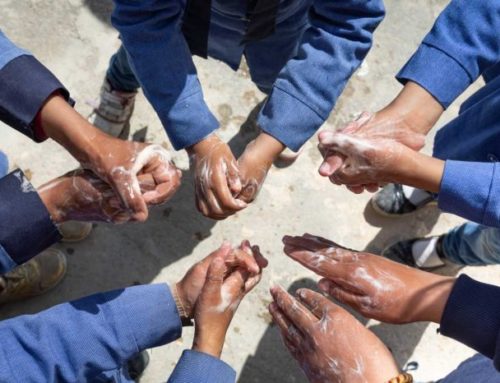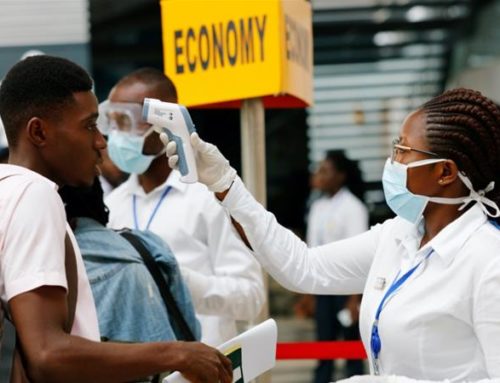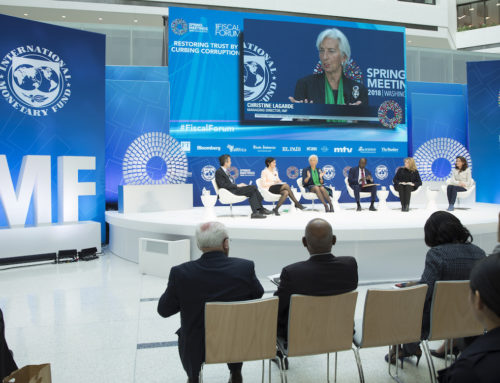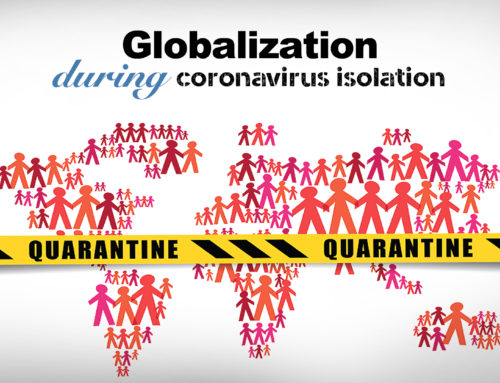
PC: Greenpeace.org
An ancient philosopher, Protagoras of Abdera once said that “man is the measure of all things”; as if to suggest that even the virulence of COVID-19 will have to be assessed from humanity’s standpoint. Indeed, whatever threatens a portion of the human family becomes also a collective concern. When confronted with threats, we develop survival mechanisms and it is normal that countries adopt various protective measures; but within a global village like the world of today, we cannot help but appraise the role of the international community in responding to humanity’s dreadful threat of the 21st century.
As we strive to fight this global pandemic, universal solidarity becomes even more pressing and the necessity of concerted efforts between countries cannot be overstated. In his encyclical letter Pacem in Terris, Pope John XXIII affirms that “all men are united by their common origin and fellowship”. In virtue of this common origin, they are bound by the same rights and duties that they owe to each another. Their nations are the subjects of reciprocal rights and duties and their relationships ought to be harmonized “in accordance with the dictates of truth, justice, willing cooperation and freedom”. All nations are intrinsically free and bound to the pursuit of the common good both at local and international levels. We are bound together for better or for worse since what affects some also affect others.
The international community whose role is to promote the common good at the international level ought to be at the centre stage of responding task-force. To-date some of its institutions are taking the lead in raising awareness about the pandemic; but seemingly, more is still needed to effectively reduce the suffering of the most vulnerable. The pandemic knows no bounds and the developing countries face a multifaceted threat in dealing with pandemic as in health sector and in addressing the social and economic degradation the crisis had generated. The international community will do well to increase free aid and to alleviate foreign debts for underdeveloped countries. In the absence of which, the orders imposed to practice self-isolation and social distancing risk translating into a kind of self-centeredness that has no empathy for our destitute partner countries.
Building on the gains of globalization such as the transformation of the world into a global village, the world of today needs to scale up its humane character to strive for the betterment of the living conditions of the underprivileged. In Populorum Progressio, Pope Paul VI warned the world that authentic development concerns the whole of man. All human activities and endeavors should aim at promoting the common good for all especially the underprivileged. Unless we side with the least in our world, we alienate ourselves from God whose plan was not to create classes but to have partners. Global institutions – political, economic and humanitarian – have therefore a noble mission of promoting the global common good of the entire human race. Pope Francis echoes the same in Evangelii Gaudium stating that “solidarity presumes the creation of a new mindset which thinks in terms of community and the priority of the life of all over the appropriation of goods by a few”.
As the world battles Covid-19, we need both local and global solutions because the nature of this pandemic has repercussions spanning beyond local confines. While concerted efforts remain unavoidable, the respect of individual freedom and dignity of particular countries is equally of utmost importance. The principle of subsidiarity requires that supranational institutions do not interfere unnecessarily with local affairs within countries.
The universal language of human interconnection is love stemming from God who is love himself (1Jn 4:8). May this time of the pandemic stir up our capacity and energies to love even beyond what is normally attractive. Until it hurts, love is not yet perfect and mature. As Covid -19 seeks to conceal our best aspirations for the future and for the entire human race, the risen Christ enable us to embrace a new beginning after covid-19. No matter how long the latter stays around, all is not lost. It is high time rather to side with the giver of life so that he teaches us to empathize with our affected brethren wherever they may be.
By Fr. Felix Barutwanayo, SJ










